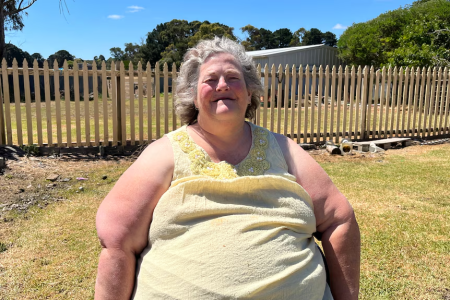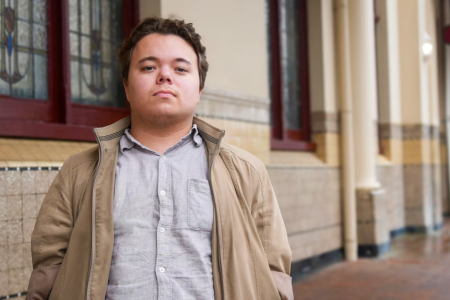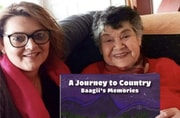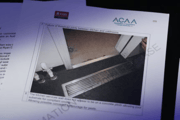South Australian drivers licence changes could leave people with disability out
By
ABC News
- Replies 5
Changes to how South Australians get their drivers licence will make it harder for people with disability to achieve independence, advocates say.
Last year an Independent Commissioner Against Corruption investigation found bribery was "prevalent" in the driver training industry.
It prompted changes to the law which removed the ability for learner drivers to have their competency ticked off over a number of sessions by a private instructor, referred to as the "logbook method".
Instead, all drivers will need to sit a vehicle on-road test (VORT) undertaken by a state government accredited assessor with an accredited vehicle.
Glenburnie woman Ruth Mott uses a wheelchair and is attempting to get a licence to be able to drive a hand-controlled vehicle.

She said the changes meant she would likely have to travel five hours from her home in Mount Gambier to Adelaide and undertake her test in an unfamiliar car and environment.
"I certainly couldn't drive to Adelaide so I'd be flying to Adelaide to sit a test with someone who I have no idea who he or she is," she said.
"It's in a car that's got cameras, in a car I've never been in before, in an area I've never been in before because I don't know Adelaide.
"I can't take a support worker or companion with me so it makes you feel nervous, anxious, and there's the pressure of controls you've never driven with."
Ms Mott said being able to drive again would help her regain some independence.
"To be able to go to the odd meeting or go see my grandkids play sport — little things that people take for granted," she said.
"Independence gives you a great state of mind and euphoria as well."
Mr Redway now has his licence and was able to complete all his driving tests in his own vehicle which had been modified to his needs.
He said it was better for the community for people with disability to have more independence.
"We shouldn't be making it harder for people with disability to live their life because it's already difficult as it is," he said.
"I've seen it firsthand and lived it firsthand."
Mr Redway said that having the ability to drive had opened up a range of opportunities he otherwise may have missed out on.
"Independence is a priority in terms of how I live my life," he said.
"Being able to go through the process I did, having my modified car and going through the same process with a driving instructor and the final test, that really has opened up who I am today."
No date has been set for when the new laws will take effect, meaning for now the logbook and VORT method are available to all learner drivers.
A Department for Infrastructure and Transport spokesperson said measures to support people with a disability, including having support workers in the car during the final test, were being considered.
The spokesperson said the department was considering allowing individuals to undertake their final test in their own vehicle or in an industry-supplied modified vehicle if an appropriate government-approved car was unavailable.
By Sam Bradbrook
Last year an Independent Commissioner Against Corruption investigation found bribery was "prevalent" in the driver training industry.
It prompted changes to the law which removed the ability for learner drivers to have their competency ticked off over a number of sessions by a private instructor, referred to as the "logbook method".
Instead, all drivers will need to sit a vehicle on-road test (VORT) undertaken by a state government accredited assessor with an accredited vehicle.
Glenburnie woman Ruth Mott uses a wheelchair and is attempting to get a licence to be able to drive a hand-controlled vehicle.

Tyler Redway says he was able to obtain his drivers licence in his own vehicle customised to his needs. (ABC South East SA: Sam Bradbrook)
"I certainly couldn't drive to Adelaide so I'd be flying to Adelaide to sit a test with someone who I have no idea who he or she is," she said.
"It's in a car that's got cameras, in a car I've never been in before, in an area I've never been in before because I don't know Adelaide.
"I can't take a support worker or companion with me so it makes you feel nervous, anxious, and there's the pressure of controls you've never driven with."
Ms Mott said being able to drive again would help her regain some independence.
"To be able to go to the odd meeting or go see my grandkids play sport — little things that people take for granted," she said.
"Independence gives you a great state of mind and euphoria as well."
'Shouldn't be making it harder'
Tyler Redway, a journalist at the Border Watch newspaper in Mount Gambier, was born with a condition called achondroplasia, a form of dwarfism.Mr Redway now has his licence and was able to complete all his driving tests in his own vehicle which had been modified to his needs.
He said it was better for the community for people with disability to have more independence.
"We shouldn't be making it harder for people with disability to live their life because it's already difficult as it is," he said.
"I've seen it firsthand and lived it firsthand."
"Independence is a priority in terms of how I live my life," he said.
"Being able to go through the process I did, having my modified car and going through the same process with a driving instructor and the final test, that really has opened up who I am today."
No date has been set for when the new laws will take effect, meaning for now the logbook and VORT method are available to all learner drivers.
A Department for Infrastructure and Transport spokesperson said measures to support people with a disability, including having support workers in the car during the final test, were being considered.
The spokesperson said the department was considering allowing individuals to undertake their final test in their own vehicle or in an industry-supplied modified vehicle if an appropriate government-approved car was unavailable.
By Sam Bradbrook









